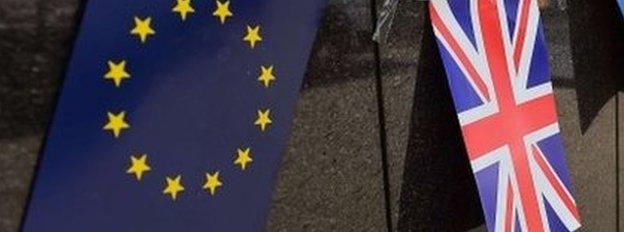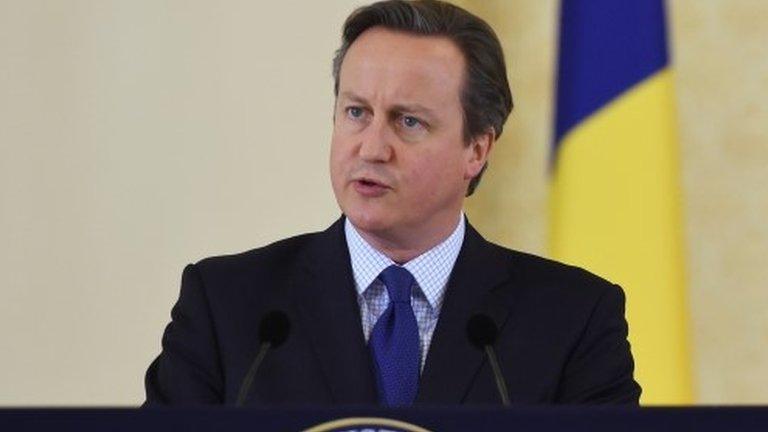EU referendum: Cameron hopeful of deal to curb migrants' benefits
- Published
Cameron: EU negotiations will take time
David Cameron insists he can reach a deal on benefit curbs for EU migrants despite the Polish prime minister saying the two countries did not see "eye-to-eye" on the issue.
The PM held talks in Warsaw with Beata Szydlo, who said there was a "common direction" and promised further talks in January to reach a "consensus".
Mr Cameron is trying to reform the EU ahead of the UK's in-out referendum.
He said he was committed to curbing "excessive migration" across the EU.
His proposals will be discussed with his fellow leaders at an EU summit later this month.
The main sticking point for Poland, which must agree to Mr Cameron's reforms, along with the other EU member states, is his call for migrants to wait four years before they can claim in-work benefits.
It follows a warning from EU Council Prresident Donald Tusk of "substantial political differences" over this proposal.
"The challenge will be reaching a compromise which satisfies David Cameron's EU counterparts and Eurosceptics in the UK," said BBC political correspondent Alex Forsyth.

UK's EU referendum in-depth


Mrs Szydlo said she was also concerned about UK proposals to end the practice of sending child benefit overseas.
She said she had common ground with the UK on many of its negotiating objectives but she suggested Mr Cameron's welfare proposals undermined the principle of free movement.
"Allowing people the freedom to make decisions on free movement, where they want to live, where they want to work... these are the main pillars of the European Union and the reason why the European Union was established," she told a press conference in Warsaw.
Mr Cameron said: "We don't yet have agreement, it is going to take time, but I do feel we have the goodwill to reach an agreement that will be of benefit to the British people."
The UK prime minister has indicated that he may be open to other ways of curbing benefits that would be more acceptable to other EU nations.
But he is under pressure from senior figures in his own party not to water down his demands.
Work and Pensions Secretary Iain Duncan Smith has urged him to stick to the plan to curb benefits for four years, emphasising repeatedly that this is a Conservative manifesto commitment.
David Cameron will be meeting the Polish PM Beata Szydlo
Mr Cameron has promised the British people an in/out EU referendum before the end of 2017.
He is seeking a "new settlement" for the UK in the EU, made up of four key strands:
Protection of the single market for Britain and other non-euro countries
Boosting competitiveness by setting a target for the reduction of the "burden" of red tape
Exempting Britain from "ever-closer union" and bolstering national parliaments
Restricting EU migrants' access to in-work benefits such as tax credits
In an interview , externalwith the Spectator, Mr Cameron said the European migrant crisis and eurozone troubles could have the "short-term" impact of persuading people to vote to leave the EU - but added that the "longer-term" impact would be a desire for a successful relationship with the single currency area.
The PM has conceded a deal will not be reached on the UK's objectives before Christmas. But Mr Tusk has said this month's summit should "pave the way" for a deal by February.
- Published8 December 2015
- Published9 December 2015
